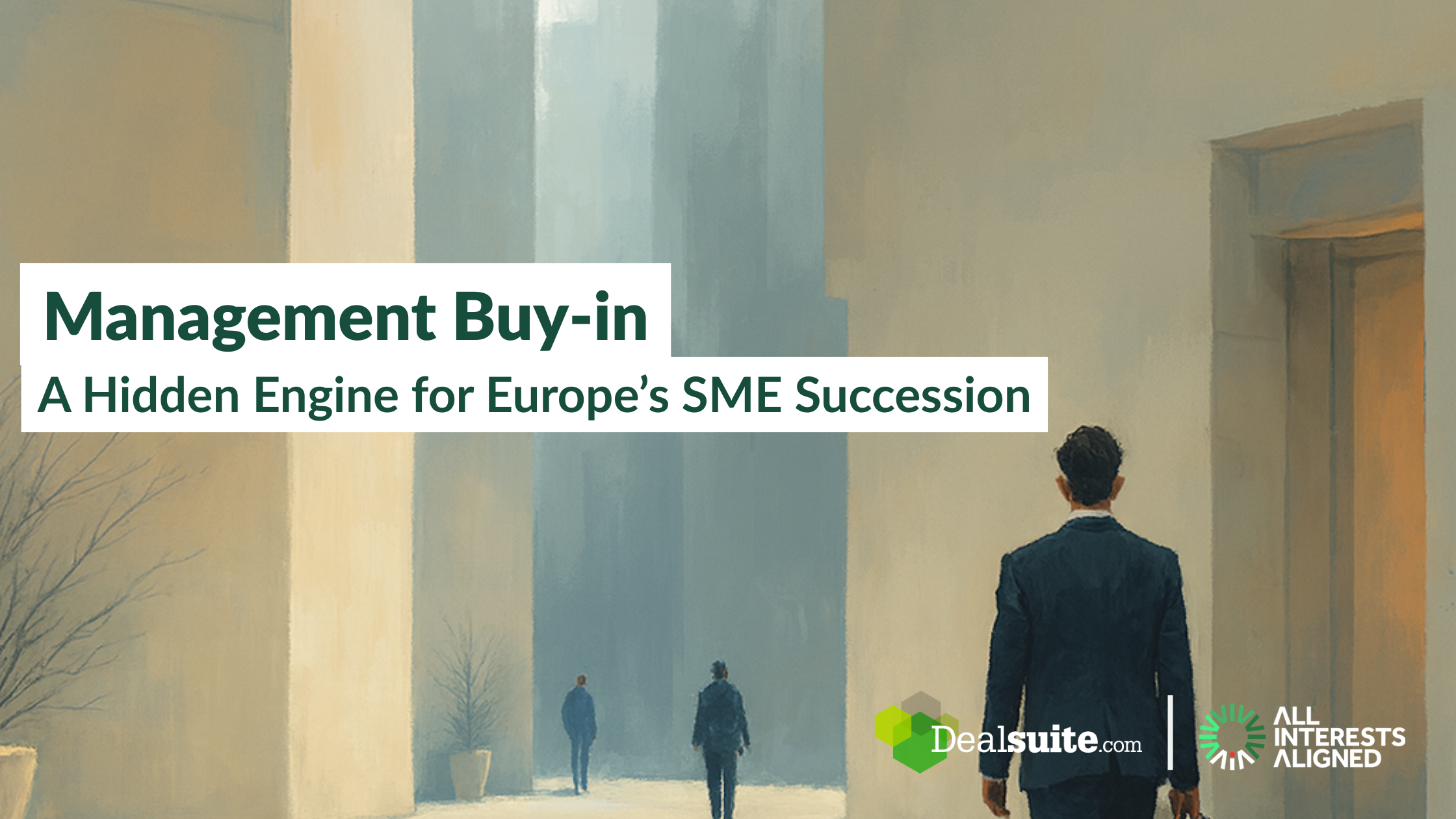|

Europe stands at a demographic and economic crossroads. As the post-war generation retires in growing numbers, the continent is facing an unprecedented succession crisis among small and medium-sized enterprises (SMEs). These firms, many of them family-owned, form the backbone of Europe’s economy. Yet, a significant share risks closure or stagnation due to a lack of successors.
Enter the Management Buy-In (MBI): a powerful but often overlooked strategy that allows external managers to acquire and run these businesses, offering continuity, innovation, and renewed growth. MBIs are not just financial transactions, they are mechanisms of economic renewal.
Across Europe, an estimated 30% of SMEs will face a succession event within the next 10 years. According to EU data and insights shared by All Interests Aligned (AIA), the majority of these firms lack a clear succession plan. This exposes local economies to serious risks: lost jobs, eroded know-how, and weakened regional resilience.
Yet the issue isn't that these businesses are unviable. Quite the contrary: many are healthy, well-established, highly profitable and have loyal customer bases. What they lack is a leader for the next chapter, and that’s where MBIs come into play.
An MBI occurs when an external entrepreneur or management team acquires a controlling interest in a company, most likely with backing from investors, and assumes an active role in its management. It differs from a Management Buy-Out (MBO), in which the current leadership team purchases the business.
MBIs are especially well-suited for succession scenarios where there is no internal successor or where fresh expertise is needed to modernize operations. This is particularly relevant in today’s digitally disrupted environment.
The growing interest in MBIs is underpinned by several key trends:
MBIs represent a compelling intersection of entrepreneurial ambition and economic necessity.
For an SME owner nearing retirement, an MBI offers a pragmatic and timely exit. It ensures continuity for employees and customers while preserving the legacy of the business. Crucially, it allows the owner to hand over their company to a safe pair of hands, an experienced operator who not only understands the business but is also deeply motivated to protect and grow what has already been built.
For the incoming buyer, it’s a chance to lead an established firm, with a far lower risk profile than a startup. The business typically has revenue, customers, suppliers, and infrastructure already in place.
And for the broader economy, MBIs ensure that viable businesses do not fall through the cracks of succession, maintaining local employment, preserving know-how, and sustaining economic resilience.
One compelling narrative emerging across Europe is that of corporate professionals stepping up as SME owners. Many bring digital expertise, operational know-how, and growth mindset into traditional sectors such as manufacturing, logistics, or B2B services.
These buyers are often driven by purpose, not just profit. They are passionate about building businesses that are resilient, future-ready, and human-centered.
MBIs are not without their hurdles:
Platforms like All Interests Aligned play a pivotal role in bridging the gap between entrepreneurs and investors, offering not just capital but mentorship, training, and ecosystem access. AIA is backed by a deep capital pool of 250 million (to date), to support MBIs across Europe. This structure removes one of the most persistent friction points in ETA models: securing acquisition funding, even after successfully discovering a great company to buy. As a firm created by entrepreneurs, for entrepreneurs, AIA understands the challenges of stepping into a CEO, and provides the tools and support to make the transition successful.
MBIs are quietly but powerfully transforming the SME succession landscape in Europe. By matching experienced professionals with legacy businesses, they create outcomes where all interests are truly aligned, owners exit gracefully, entrepreneurs step up confidently, and communities retain vital economic engines.
As the succession wave continues to rise, the Management Buy-In could well become one of Europe’s most vital tools for economic continuity and renewal.
.png)